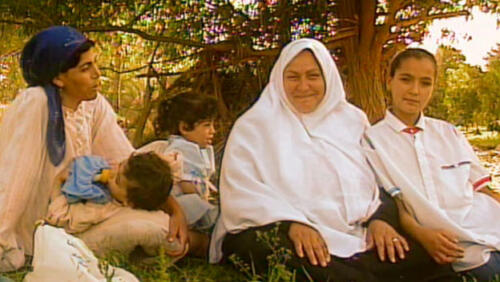African History
Africa is a large and diverse continent that extends from South Africa northward to the Mediterranean Sea. The continent makes up one-fifth of the total land surface of Earth. Widely recognized as the birthplace of humankind, Africa saw the rise of great kingdoms, faced the transatlantic slave trade, colonization and Apartheid.

Start Here

In 1896, Ethiopia fended off an invading Italian army and secured its independence.

During the 15th and 16th centuries, Timbuktu, located in Mali, served as a major intellectual hub of Islamic civilization.

A combination of internal and international resistance to apartheid helped dismantle the white supremacist regime.

Read excerpts from letters, speeches and memoirs reflecting on each stage of his life—from the innocence of a tribal village boy to the triumphs and pressures of being South Africa's first black president.
3 Influential African Empires
Explore All Related Topics

Battles in Africa were waged between colonial powers, but most of those compelled to fight were conscripted Africans.

In 1896, Ethiopia fended off an invading Italian army and secured its independence.

During the 15th and 16th centuries, Timbuktu, located in Mali, served as a major intellectual hub of Islamic civilization.

Queen Amanirenas commanded soldiers of the ancient Kingdom of Kush and successfully resisted Roman rule.

The forced transport of enslaved people from Africa led to populations of Black people throughout North and South America and other parts of the world.

In a nation bitterly divided by apartheid, Mandela used the game to foster shared national pride.

A combination of internal and international resistance to apartheid helped dismantle the white supremacist regime.

For decades, the country's Black majority was controlled by racist laws enshrining white supremacy.

Read excerpts from letters, speeches and memoirs reflecting on each stage of his life—from the innocence of a tribal village boy to the triumphs and pressures of being South Africa's first black president.

Forget today’s tech billionaires. The wealth of Mansa Musa of Mali was too vast to be imagined—or equaled.

The Suez Canal, a man-made waterway linking the Mediterranean Sea to the Indian Ocean via the Red Sea, has enabled international trade and conflict since 1869.

The 93-year-old president’s 37-year rule ended with a military coup.

From ancient Sudan to medieval Zimbabwe, get the facts on seven African kingdoms that made their mark on history.

Though exact totals will never be known, the transatlantic slave trade is believed to have forcibly displaced some 12.5 million Africans between the 17th and 19th centuries; some 10.6 million survived the infamous Middle Passage across the Atlantic. Though descendants of these enslaved Africans now make up considerable segments of the population in the United […]

In 1619, some 20 Africans arrived at Jamestown, Virginia, where they were purchased from Dutch privateers to aid in the English colony’s lucrative, labor-intensive cultivation of tobacco. As profits piled up and slavery spread through the American colonies, the British crown decided to exert control over the slave trade in the colonies (and the wealth […]

Find out more about the Mali descendants.

South African officials had tried to make the anti-apartheid campaigner disappear.

Saladin is the Western name of Salah al-Din Yusuf ibn Ayyub, the Muslim sultan of Egypt and Syria who famously defeated a massive army of Crusaders in the Battle of Hattin and captured the city of Jerusalem in 1187. At the height of his power, he ruled a unified Muslim region stretching from Egypt to Arabia.

The recent crisis in Libya is only the latest development in a long and tumultuous history of relations between the North African nation and the West.

Apartheid, the legal and cultural segregation of the non-white citizens of South Africa, ended in 1994 thanks to activist Nelson Mandela and F.W. de Klerk.

Idi Amin was a Ugandan military officer and politician. In 1971 he overthrew the elected government of Milton Obote and declared himself president of Uganda, launching a ruthless eight-year regime in which an estimated 300,000 civilians were massacred.

Robert Mugabe was a teacher and freedom fighter who served as the first president of an independent Zimbabwe until he was ousted from the role after 37 years.

The South African activist and former president Nelson Mandela (1918-2013) helped bring an end to apartheid and was an advocate for human rights around the globe.

The Rwandan genocide, also known as the genocide against the Tutsi, occured in 1994 when members of the Hutu ethnic majority in the east-central African nation of Rwanda murdered as many as 800,000 people, mostly of the Tutsi minority. Started by Hutu nationalists in the capital of Kigali, the genocide spread throughout the country with shocking speed and brutality.









